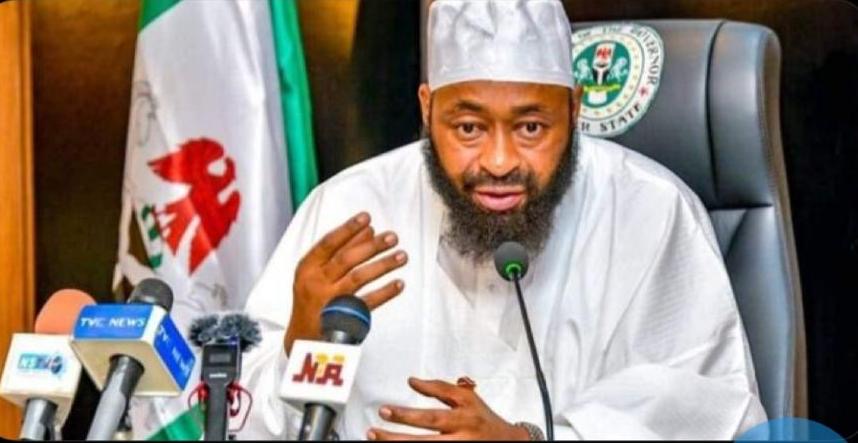Governor Bago Orders Arrest, Shaving of People Wearing Dreadlocks in Niger State

A new directive issued by Governor Mohammed Umar Bago of Niger State has sparked nationwide outrage and concern after he ordered the arrest and compulsory shaving of individuals wearing dreadlocks across the state.
The governor cited “security concerns” as the rationale behind the order, claiming that criminal elements were allegedly using the hairstyle to mask their identities and evade law enforcement surveillance.
Speaking at a security briefing in Minna over the weekend, Governor Bago said the measure was part of broader efforts to curb rising insecurity in the state.
“We have intelligence suggesting that some criminal elements, including insurgents and cultists, are adopting dreadlocks and unconventional hairstyles to blend in with the youth and operate undetected.
“We cannot allow our communities to be compromised due to carelessness or misplaced cultural sentiment,” he.said.
The directive, however, has drawn swift and sharp criticism from human rights organizations, legal practitioners, cultural advocates, and members of the public, who describe it as discriminatory, unconstitutional, and a violation of personal freedom and dignity.
Reports of Forced Shaving and Harassment
In the days following the announcement, eyewitness accounts from across major towns in Niger State—Minna, Bida, Suleja, and Kontagora—have surfaced, revealing widespread enforcement of the policy by security agencies and local task forces. Videos circulating on social media appear to show young men with dreadlocks being rounded up by police officers, their hair forcefully shaved in public without due process or formal charges.
One such victim, 22-year-old Musa Bello, a student at the Federal University of Technology, Minna, recounted his experience.
“I was on my way to campus when I was stopped by officers. They said my hair made me suspicious. I was taken to a nearby station, held for hours, and then forced to cut my locks. I wasn’t allowed to call anyone. They never asked if I’d done anything wrong—they just saw my hair and made their judgment,” he said.
Similar stories have emerged across campuses, markets, and urban centers. Legal practitioners have described the actions as unlawful and arbitrary. Barrister Aisha Lawal, a human rights lawyer in Minna, has already filed a suit challenging the directive in a state high court.
“This is a clear abuse of executive power,” Lawal said. “There is no law in Nigeria that criminalizes hairstyles. Profiling people based on their appearance not only promotes discrimination but also diverts attention from real security work.”
National and International Backlash
Prominent Nigerian musicians, artists, and influencers have condemned the directive, calling it an affront to youth culture and personal liberty. A trending hashtag, #MyHairMyRight, has emerged online, with thousands of users posting images of their dreadlocks and calling on the governor to rescind the order.
Reggae artist and social activist Ras Tunde described the policy as “a cultural attack.” “For many of us, dreadlocks are not just a style—they are spiritual, cultural, and personal. This kind of oppression reminds us of darker times when people were judged and punished for simply being different.”
International watchdogs, including Amnesty International Nigeria, have also weighed in. In a statement released Monday, the organization called the directive “a gross violation of human rights” and urged the Nigerian government to investigate the actions of security personnel involved in the forced haircuts.
Government Response and Possible Reversal
In response to the backlash, Niger State Commissioner for Information, Binta Suleiman, issued a statement Monday evening saying the directive had been “misunderstood” and that the governor’s intention was not to target innocent citizens but to assist law enforcement in identifying potential threats.
However, no official suspension or reversal of the policy has yet been announced, and enforcement activities appear to be ongoing in some areas.
The Nigerian Bar Association, Northern Youth Coalition, and other civil society groups are planning peaceful demonstrations in Minna and Abuja to protest what they describe as a “draconian and regressive order.”
Broader Implications
The incident has ignited a broader debate about identity, security, and the limits of executive power in a democratic society. While authorities argue that extraordinary times require extraordinary measures, critics insist that violating individual rights cannot be justified in the name of security.
As the controversy deepens, residents of Niger State—and indeed all Nigerians—are left grappling with a key question: Where do we draw the line between safety and freedom?
For now, the streets of Minna remain tense, barbershops report unusual surges in clientele—many acting out of fear—and young Nigerians with dreadlocks walk a little more cautiously, wondering if their appearance could make them the next target.









